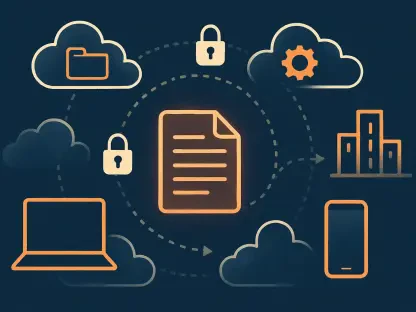As we dive into the world of cybersecurity, I’m thrilled to speak with Chloe Maraina, our Business Intelligence expert with a deep passion for data analysis and a keen eye for emerging threats in digital landscapes. With her extensive background in data science, Chloe has been closely following the latest security advisories, including the critical SessionReaper flaw in Adobe Commerce and Magento Open Source. Today, we’ll explore the nature of this vulnerability, its potential impact on global eCommerce, and the urgent steps businesses must take to protect themselves. Our conversation will touch on the technical intricacies of the flaw, the risks it poses, and the broader implications for open-source software security.
Can you walk us through what the SessionReaper vulnerability is and why it’s causing such alarm in the cybersecurity community?
Absolutely, James. SessionReaper, tracked as CVE-2025-54236, is a critical vulnerability in Adobe Commerce and Magento Open Source platforms. It’s rooted in improper input validation within the Commerce REST API, which essentially means attackers can exploit it without needing any authentication. What makes it so alarming is its CVSS rating of 9.1, indicating a high severity due to its ease of exploitation and the potential damage it can cause. This flaw allows attackers to bypass security controls with low complexity, putting countless eCommerce operations at risk.
How exactly does this vulnerability enable attackers to compromise systems like customer sessions?
The core issue with SessionReaper is that it lets attackers hijack active customer sessions. By exploiting the REST API flaw, they can gain unauthorized access to user accounts, essentially stepping into a customer’s shoes. From there, they can access sensitive information, manipulate transactions, or even escalate their privileges if they manage to steal tokens or API keys. It’s a direct line into the heart of an eCommerce platform, which is why it’s so dangerous.
What types of data or operations are most at risk from this kind of attack?
The data at risk is pretty much everything tied to customer interactions on these platforms. Think personal information like names, addresses, payment details, and order histories. Beyond that, attackers could tamper with transactions or disrupt business operations. In some configurations, there’s even a chance for remote code execution, where malicious code could be run on the server, giving attackers deeper control over the system. It’s a goldmine for anyone with malicious intent.
Could you elaborate on who is affected by SessionReaper and how widespread the impact might be?
This vulnerability hits a broad swath of users, specifically those running Adobe Commerce and Magento Open Source. It doesn’t discriminate based on business size—small shops and large enterprises are equally exposed. Certain setups, like those using B2B extensions or the Custom Attributes Serializable Module, are particularly vulnerable. Given how widely these platforms are used for online stores globally, we’re talking about millions of transactions potentially at risk. It’s a massive concern for the eCommerce ecosystem.
What immediate actions have been recommended to safeguard against this threat?
The National Computer Emergency Response Team has been very clear on this. Their top recommendation is to apply the emergency hotfix, labeled VULN-32437-2-4-X-patch, or upgrade to the latest Adobe release, APSB25-88. Beyond that, businesses should rotate admin and API credentials regularly to limit the damage if they’re compromised. Tools like Web Application Firewalls or Intrusion Detection Systems can also help by filtering out malicious traffic and alerting to suspicious activity.
Beyond these initial fixes, what broader security practices should businesses adopt to stay protected?
There are several layers businesses can add to their defenses. One key step is restricting REST API access to only trusted networks, which cuts down the attack surface significantly. Monitoring system logs for unusual behavior is also critical—it’s often the first sign of an attempted breach. Then there’s the concept of defense-in-depth, which means layering multiple security measures so that if one fails, others are in place to catch the threat. This could include everything from strict access controls to regular security audits.
Why is there such a strong emphasis on acting quickly to address this vulnerability?
Time is of the essence with a flaw like SessionReaper. If businesses delay patching or upgrading, they’re essentially leaving the door wide open for attackers. Experts are warning that large-scale exploitation could happen very rapidly once malicious actors start targeting this vulnerability en masse. A single breach could lead to cascading effects—compromised customer trust, financial losses, and regulatory penalties. The longer the delay, the higher the risk of mass compromise across eCommerce platforms.
Looking ahead, what is your forecast for the security of open-source eCommerce platforms in light of vulnerabilities like SessionReaper?
I think we’re at a pivotal moment for open-source eCommerce platforms. Vulnerabilities like SessionReaper highlight the urgent need for faster patch adoption and stronger community-driven security frameworks. My forecast is that we’ll see a push toward more proactive measures—think automated vulnerability scanning and tighter integration of security tools in development pipelines. But it’s also on businesses to prioritize security as much as functionality. If the community and companies collaborate effectively, we can mitigate these risks, but it’s going to require a cultural shift in how we approach open-source security.









